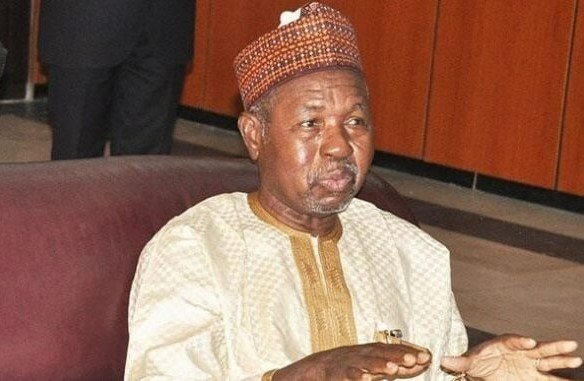THE Tertiary Education Trust Fund (TETFund) has temporarily suspended all foreign training programmes, citing the surging costs of overseas education, fluctuating foreign exchange rates, and the troubling trend of Nigerian scholars absconding while abroad.
Announcing the decision during the commissioning of five landmark projects at Akwa Ibom State University (AKSU), the Chairman of TETFund’s Board of Trustees and former Katsina State Governor, Aminu Bello Masari, explained that the decision was driven by a commitment to prioritise more impactful, home-based academic interventions.
“Due to high foreign exchange rates and the rising cost of overseas training as well as the unfortunate trend of some scholars absconding TETFund has had to temporarily suspend foreign training programs,” Masari stated.
Instead, the fund has redirected resources toward local infrastructure and research development, with the aim of achieving broader and more sustainable educational benefits across Nigeria’s tertiary institutions.
Speaking at the Ikot Akpaden and Obio Akpa campuses of AKSU, Masari revealed that the university has received a cumulative total of ₦14.47 billion from TETFund between 2010 and 2025 through various intervention lines—Annual, Special, Zonal, and High-Impact categories.
He noted that while most of the allocated funds have already been accessed and utilised, about ₦2.67 billion remains available for ongoing and upcoming projects.
“With sustained judicious use of these funds, I am confident that the University will continue to position itself as a beacon of academic excellence and research not only within this region but globally,” Masari remarked.
He also formally commissioned five major infrastructure projects valued at over ₦7.3 billion, a milestone in the university’s development trajectory.
The Vice-Chancellor of AKSU, Prof. Nse Essien, provided a breakdown of the commissioned projects, which include new buildings for: Faculty of Biological Sciences, Faculty of Physical Sciences, Faculty of Engineering, Faculty of Management Sciences and Faculty of Agriculture’s Laboratory and Classroom Complex
Altogether, these facilities comprise 189 new offices, 51 classrooms, 40 state-of-the-art laboratories, and 237 restrooms, among other key amenities.
Prof. Essien praised TETFund for the continued support, noting that the new facilities will bolster the university’s capacity for research, scientific innovation, and practical education, especially in STEM and agriculture.
Despite the successful completion of the buildings, the Vice-Chancellor highlighted critical gaps, noting that the Faculty of Biological Sciences and Faculty of Agriculture remain unfurnished.
“We humbly request that the TETFund and other development partners take into account furnishing these amenities to facilitate complete academic operations and functionality,” he appealed.
He also called for future interventions in areas such as: Integrated Campus Justice System (ICJ) development, Digital library upgrades, Postgraduate research infrastructure and Student hostel construction across both campuses.
Also present at the commissioning was the immediate past Pro-Chancellor of AKSU, Senator Udoma Udo Udoma, who praised the projects as a testament to TETFund’s transformational impact on the Nigerian higher education landscape.
He applauded the university’s leadership for seeing the projects through and urged proper maintenance to ensure longevity and full functionality.
The suspension of foreign training programmes marks a strategic pivot by TETFund toward domestic capacity building, in a climate where exchange rate volatility and economic pressures have rendered overseas programmes increasingly unsustainable.
The decision also underscores growing concerns over scholar accountability, as reports of scholars absconding during foreign academic programmes have become a recurring problem.
Masari reiterated the Fund’s commitment to Nigeria’s development, promising continued investment in physical infrastructure, research, and teaching resources ensuring that no institution is left behind.
“This is a challenging but necessary shift. We remain committed to building Nigeria’s knowledge economy through strong local foundations,” he concluded.







